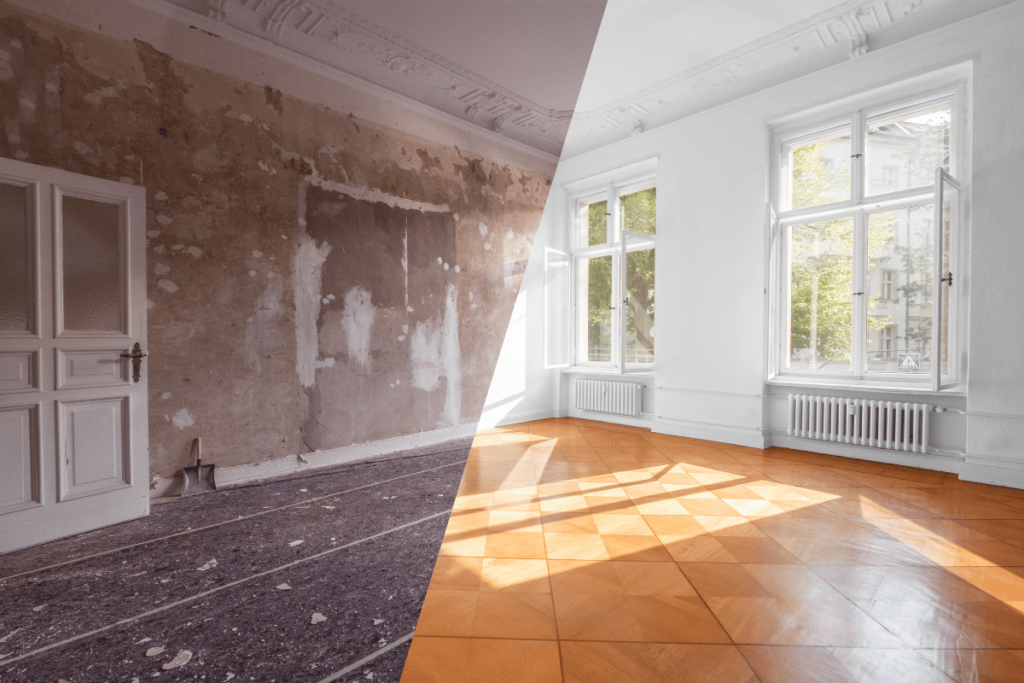More than four in 10 distressed properties purchased at auction are located in underserved communities with large low-income or minority populations, which are often overlooked and left behind.
“I grew up in the areas I’m developing now. I remember there was no hot water in those areas. I remember there was a slum lord feeling,” said Jermaine Morgan, a local community developer in Columbus, Georgia. , he purchased distressed properties at auction. “I try to give consumers what I wished I had when I was growing up.”
Morgan purchased four properties at foreclosure auctions in 2023 through the Auction.com marketplace. All four homes are now owner-occupied, according to public records tax assessor data
“I’m trying to rebuild our community,” Morgan said, noting that he performed extensive renovations before reselling the home to a retail buyer. “I’m trying to make certain areas livable again. I can’t just be part of the problem. I want to be part of the solution.
Nationwide, 43% of distressed properties sold at auction are in low-income or minority neighborhoods, according to an analysis of more than 195,000 properties sold on Auction.com since 2018 and data from the FHFA on underserved areas. American census tract. That number has remained stable over time, with 43% of 2023 auction sales coming from underserved communities.
In Morgan’s home state of Georgia, 48.8% of all distressed properties sold on Auction.com over the past seven years were in underserved communities, the sixth-highest rate among all states, behind only Delaware (55.7 %), Maryland (53.2%) and New Mexico (52.0%), Michigan (49.2%) and California (49.0%)
Like Morgan, most buyers of distressed properties at auction are small business owners who provide local jobs and are motivated by improving their local communities, according to buyer survey data from Auction.com.
More than three-quarters (78%) of Auction.com buyers surveyed in 2024 describe themselves as local community developers, slightly higher than the 77% of buyers surveyed in 2023. Homes described themselves as owner-occupier buyers, while only 3% described themselves as institutional investors.
A staggering 96% of buyers surveyed in 2024 said they purchased 10 or fewer properties in the previous year, with 72% saying they purchased 2 or more during the year Few properties.
For most Auction.com buyers, their motivation for investing in real estate is twofold. Building wealth is a top priority, with 97% ranking it among their top three motivations. However, they also have a strong desire to improve the communities in which they invest. 82% ranked community improvement as a top three motivation and 57% cited job creation as a top three motivation.
“I’ve been investing for a few years now and I’ve made some money and I’ve been able to provide a better life for my family,” Morgan said, adding that as he invested, his motivation to invest grew. Good to know the impact local investors like him can have on a community. “Now it’s driven more by delivering services to the market.”
Local community developers like Jermaine are dramatically increasing the value of the properties they buy at auction through extensive renovations. Analysis of more than 70,000 previously distressed properties resold within a year of purchase through Auction.com revealed an average increase in value of 37 percentage points between auction purchase and resale.
Collectively, local community developers like Jermaine have had a significant impact on community stability nationwide. Of the nearly 850,000 properties that have gone to foreclosure auctions in the United States since 2018, more than 468,000 (55%) are currently owner-occupied, according to an ATOM Data Solutions analysis of county recorder and tax assessor data.
In census-underserved areas as defined by FHFA, more than 200,000 formerly foreclosed properties that are now owner-occupied (43%) are located in underserved census tracts.
The proportion of previously foreclosed properties now owner-occupied varies by state, from 79% in Rhode Island to 33% in Hawaii. In Morgan’s home state of Georgia, 53% of previously foreclosed homes are now owner-occupied.
“The question we have to ask ourselves as investors is do we continue to allow our communities to decline, or do we step in and take action,” Morgan said. “I choose to step in and do something about it.”
Daren Blomquist is Auction.com’s Vice President of Marketing.

